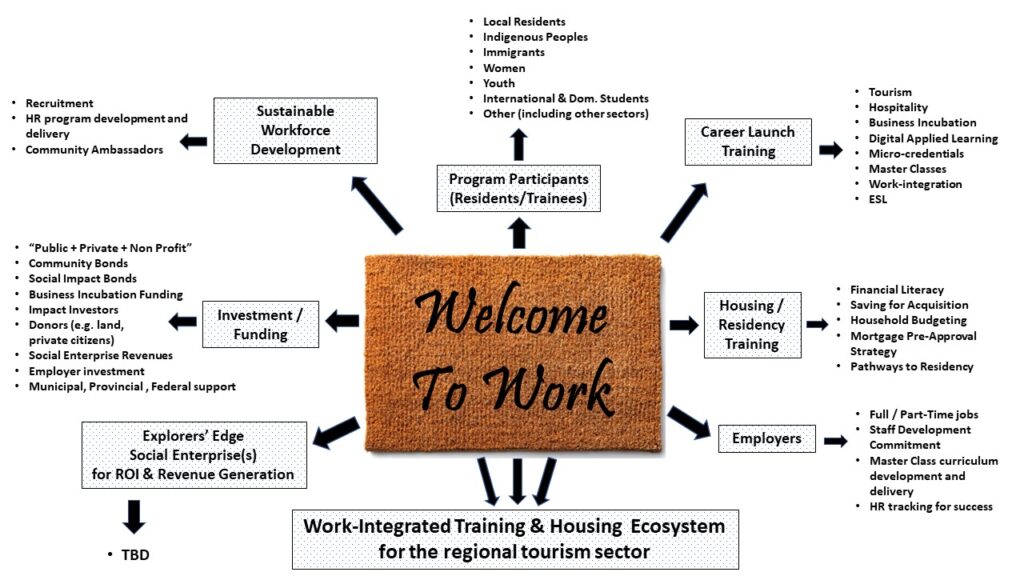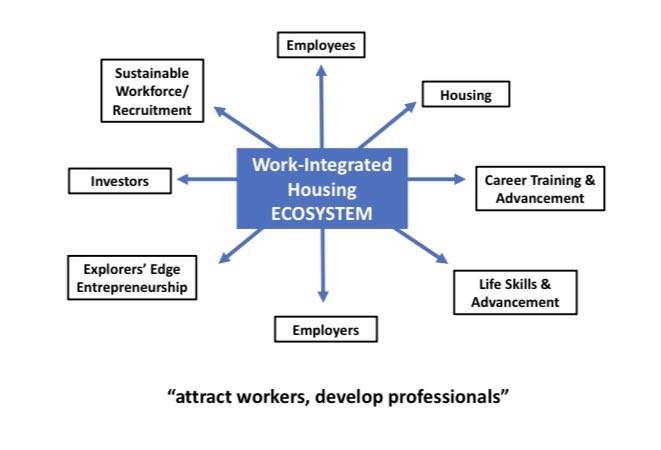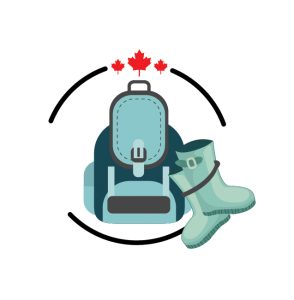
Tourism Industry Catalyst Housing
Building for Sector & Community Sustainability
In 2018, Explorers’ Edge undertook the development of a substantial Product Development Framework to identify gaps and opportunities pertaining to tangible and intangible regional offerings. At that time, and for the first time, workforce shortages was identified by industry stakeholders as one of the most important gaps to address. The concern was stated clearly that “you can have the best product in the world, but if you don’t have good service, it won’t matter.”
In early 2019, Explorers’ Edge undertook an initial “Catalyst Housing Concept Research & Articulation” study to determine if a proposed housing solution – a new model developed and delivered by the Destination Development Organization (DDO) – could address the significant workforce challenges that were already problematic for the industry prior to the pandemic’s socio and economic shocks, by attracting workers with a “work-integrated training and housing ecosystem.”
The notion that region-centric training should be developed in conjunction with housing development came out of Explorers’ Edge staff’s work with post-secondary and secondary schools.
Fast forward to March 2020, when the organization’s focus turned singularly to ensuring the survival of industry over the next couple of years as the devastating Covid storm was weathered. Discussions regarding the potential for industry-centric housing development to attract more workers never wavered entirely, however, and with the exponential increase in labour shortages for the tourism industry that have resulted from pandemic operating restrictions, attention turned once again to the need for the DDO to consider how “the business of tourism” can help solve the housing crisis that jeopardizes our industry.
In the 2022 Q2 Business Confidence Index Survey for the RTO12 catchment, it was calculated that for the high seasons in particular the regional industry was short 1,300 full-time and 4,600 part-time workers.
Region-Specific Workforce Challenges
Factors Affecting Attracting/Retaining Workers
- Overall loss of workers as a result of the pandemic – mass exodus the industry has not recovered from
- Negative perception of tourism as a viable career or for career development: considered precarious and low-paying work
- Shelter-to-Income Ratio (STIR) for entry level jobs is greater than 30% (therefore those incomes are not viable for housing affordability)
- The estimated Living Wage for the region is $18.55/hour with full time hours (which is not enough to make STIR) in a gentrified region
- Most entry level positions in tourism pay minimum wage (Q2 Business Confidence Index: 20% pay less than $15/hour, 55% pay $15-20 hour)
- Market Basket Measure (MBM – a measurement to determine poverty levels) for populations in this area is $42,531 (see “The Extent & Cost of Poverty Report in Muskoka – District of Muskoka, August 2022) meaning “50% of people in Muskoka had a total income below the MBM”
- The Median Income for Muskoka is $40,800 (2020 Stats Can Census)
- The Median Income for Individuals in West Parry Sound (multiple municipalities average) is $40,032
- The Median Income for Individuals in the Almaguin Highlands (multiple municipalities average) is $34,800
- Population in the catchment skews older
- 55+ age group (make up big percentage of regional tourism workforce – see BCI Q2 2022) retiring or “aging out”
- Lack of youth development and retention (see Simcoe Muskoka Workforce Development Reports)
- Improved DEI needed to welcome out-of-area workers, students and immigrants
Factors Affecting Lack of Housing Affordability
- The median price of a non-waterfront home in the catchment for September 2022 was $552K
- The benchmark price according to the Home Price Index for single family homes was $734,400 and for townhomes/row units it was $640,800
- For Q3 2022 (July to September) there were 2,500 active private home rentals on Airbnb, with 95% being entire home rentals
- Not enough units for current home owners to downsize and free up supply
- Lack of attainable (vs. affordable) housing
Proposed Solution: Tourism Catalyst Housing
Explorers’ Edge is proposing a new housing model to meet the staffing needs of our sector, to attract workers, to develop professionals, and to build industry and community resiliency. This model, known internally as the Work-Integrated Training & Housing Ecosystem, will be unveiled in Q2 of 2023.







